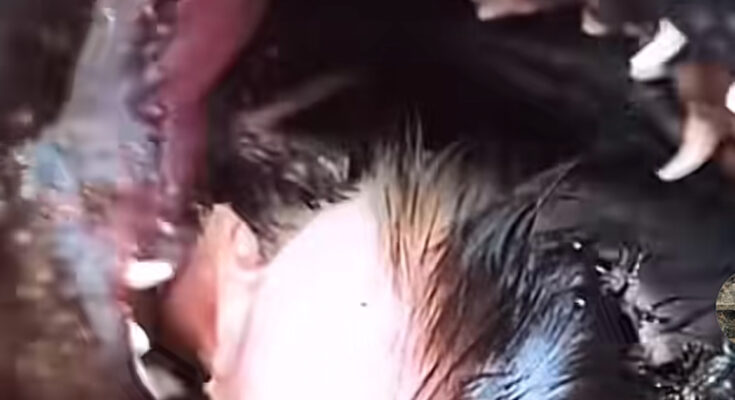Tragic Encounter: Small Monkey Fatally Injured After Dog Attack in Residential Area
In a deeply disturbing incident that highlights the often-overlooked risks of human-wildlife interactions, a small monkey was severely injured—and later died—after being bitten by a domestic dog in a suburban neighborhood earlier this week.
The event occurred in the early hours of Monday morning in a residential colony bordering a forested area. According to eyewitnesses, the monkey—believed to be a young bonnet macaque—had been foraging near garbage bins when it was suddenly attacked by a pet dog that had been let out without a leash.
Residents reported hearing loud screeches followed by barking, prompting them to rush outside. By the time they intervened, the monkey had suffered deep bite wounds and was bleeding profusely. An animal rescue volunteer who lives in the neighborhood rushed the injured monkey to a nearby wildlife rehabilitation center. Unfortunately, despite emergency treatment, the monkey succumbed to its injuries a few hours later.
Human Habitats and Wildlife: A Growing Conflict
This incident is part of a growing pattern of conflict between urban development and wildlife. As cities expand and natural habitats shrink, animals like monkeys, stray dogs, and other creatures are forced into closer proximity, often leading to dangerous confrontations.
Wildlife experts stress that while monkeys are often perceived as playful or harmless, their lives are increasingly at risk due to human encroachment and lax pet control. In this case, the dog involved had not shown aggressive tendencies in the past, according to its owner. However, the natural prey instinct combined with the stress of a wild animal entering a pet’s territory can lead to fatal outcomes.
Legal and Ethical Implications
Under local wildlife protection laws, monkeys are considered protected animals, and harming them—directly or indirectly—can carry legal consequences. Animal welfare organizations have urged dog owners to be more responsible, especially in areas where wildlife sightings are common.
“This wasn’t just an accident—it’s a result of poor planning and a lack of awareness,” said Dr. Meera Sinha, a wildlife veterinarian. “People must understand that domesticated pets and wild animals should never be allowed to interact without supervision. This monkey didn’t have a chance.”
The Need for Coexistence Strategies
The tragic death of the young monkey has reignited conversations around building safe urban environments for both animals and humans. Conservationists advocate for better waste management to reduce food sources that attract wild animals to human dwellings, along with stricter leash laws for pet owners.
Simple measures like fencing, awareness signage, and community education programs can go a long way in preventing such heartbreaking incidents. “Coexistence is possible,” said Dr. Sinha. “But only if we take it seriously.”
As the community mourns the unnecessary loss of a life, animal welfare groups are calling for stricter regulations and more empathy toward all living beings—domestic or wild



